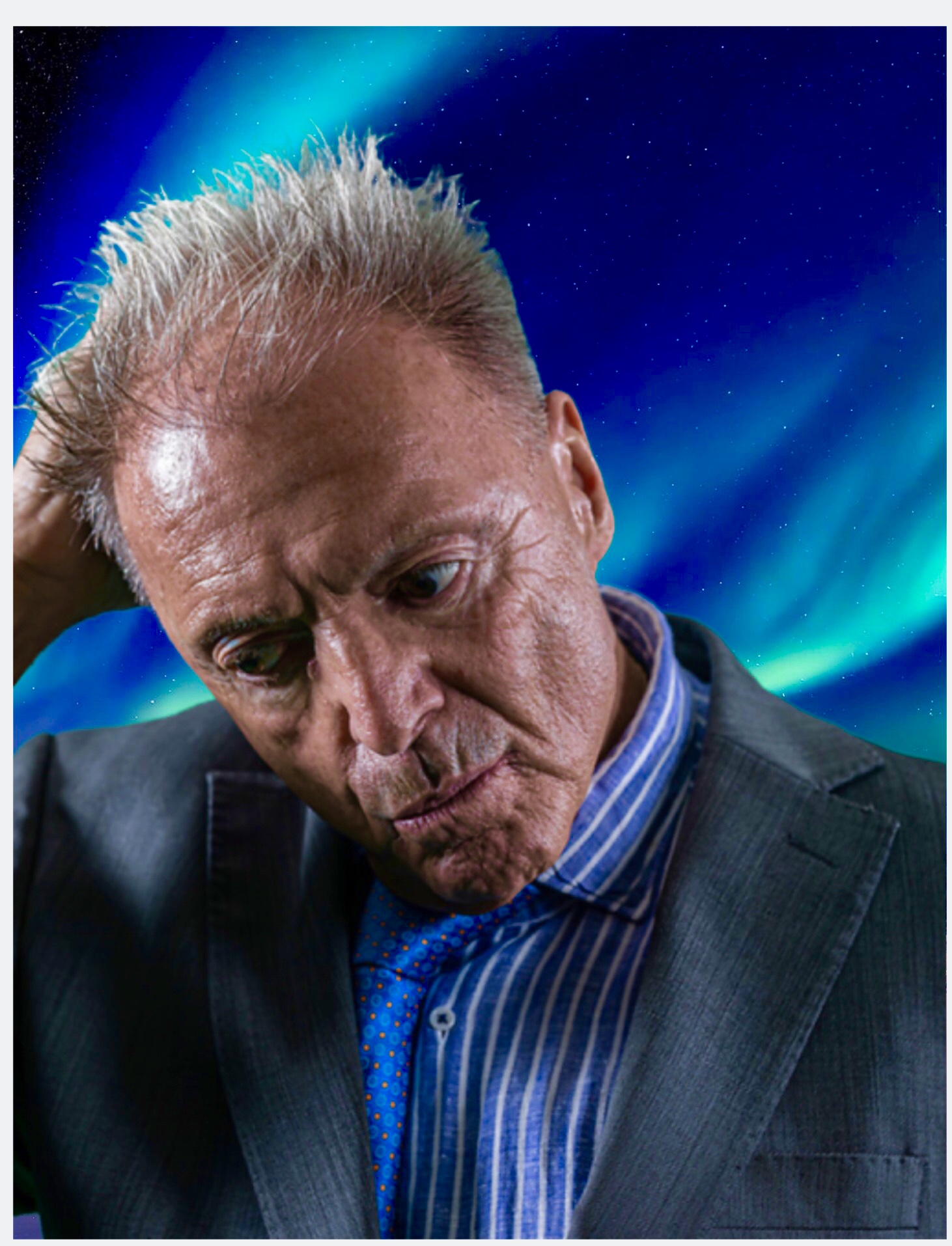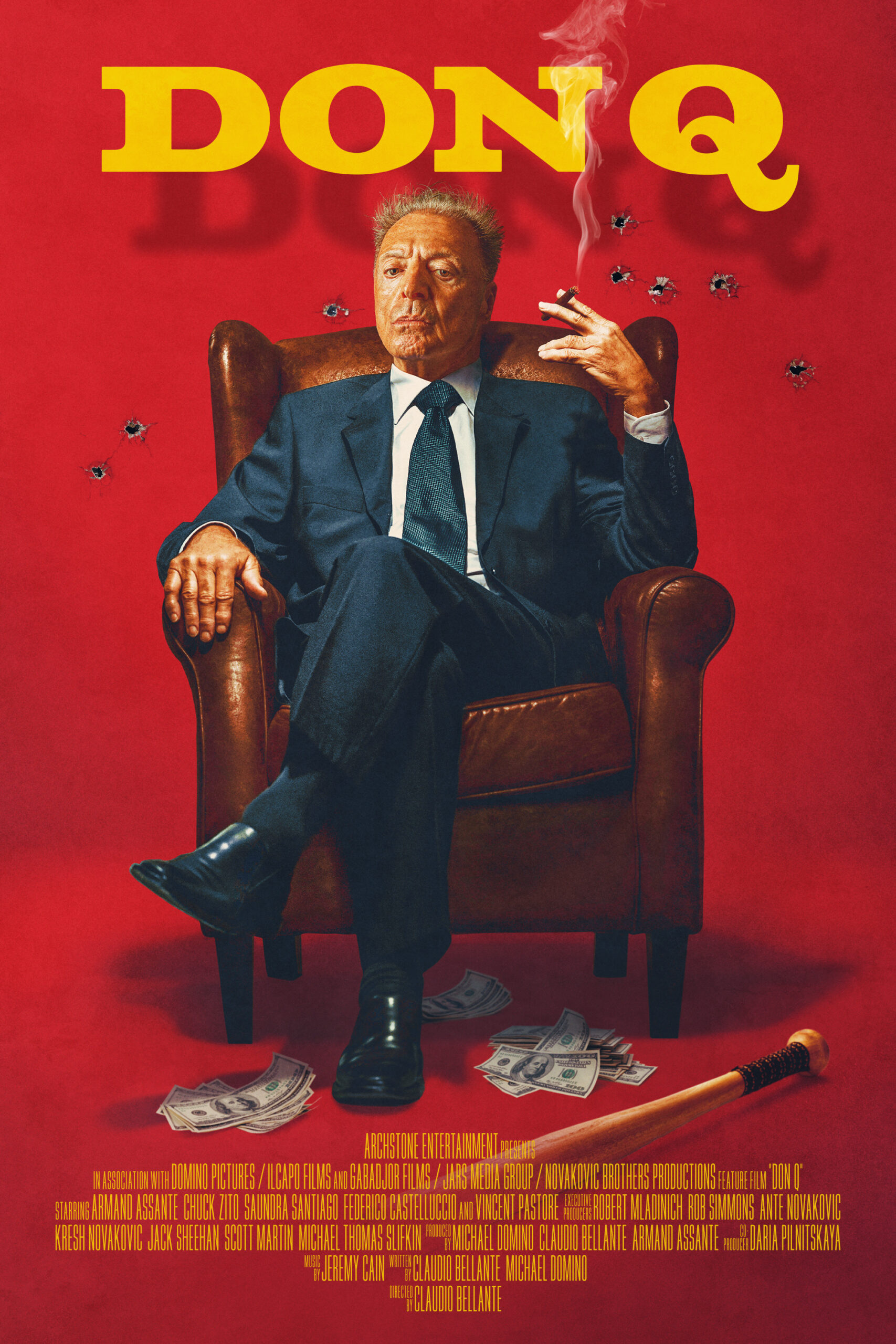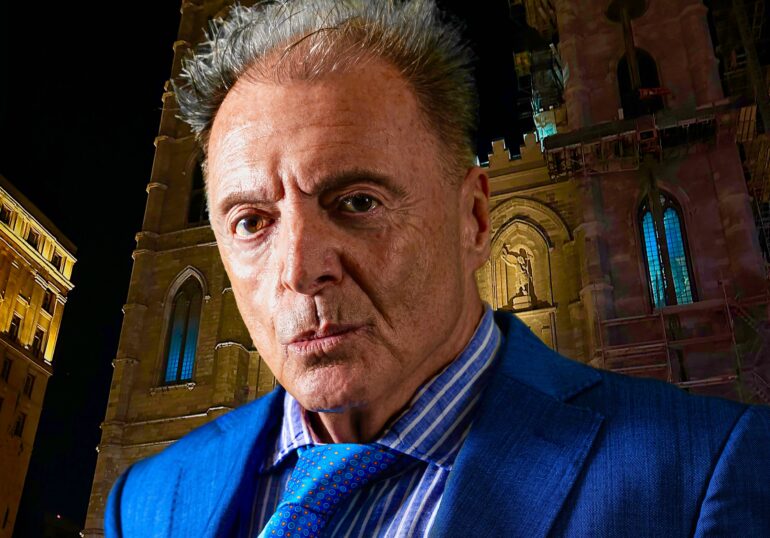Armand Assante has starred in some iconic movies like Gotti, Judge Dredd, American Gangster and many, many more. He also played one of the best villains in NCIS as La Grenouille (René Benoit).
In his latest movie Don Q, Assante plays a Little Italy resident, who imagines himself as a powerful mafia boss aiming to restore the neighborhood’s values. The return of a ruthless ex-con challenges Q’s delusion, embroiling him and a loyal recruit in a turf war over the area.
Armand stopped by to chat with me about the film.
Hi Armand, nice to meet you!
Hi Eoin, so, where are you from?
Scotland initially, but I live in Canada now.
I went on a sojourn with two buddies of mine all through Scotland and the Hebrides, the Outer Hebrides. I just love that country. It’s amazing, amazing, very powerful experience.
It is beautiful.
Where’s your family from?
They’re from Ireland initially and we’ve kind of traveled all over. Ireland then Scotland and me and my brother live here in Canada.
Where in Ireland?
Donegal initially and Derry.
Oh my God, wow. That’s the whole other side. My mother’s family was from Cork.
Oh really? Been there; beautiful place too.
My first wife’s family was a direct descendant of the Clan Macleod. I visited the island where the Macleods are buried actually. Haunting place, unbelievable. Very powerful experience.
Yeah, I imagine.

Congratulations on Don Q. Although it’s a comedy, it is more of a tragedy and there’s a lot of pathos there too. What was it that jumped off the page whenever you first read the script that appealed about it?
It was a process because the script was really in several stages before I fully committed. I went through immense discussions with this Italian director on how to morph it, if you will, which we did over the course of the summer because it was not quite realized as a story. But it draws upon a very powerful theme, which is out of Cervantes, which is the theme of delusion. What I really feel was so powerful about Cervantes and why it probably will remain the most important work in human literature is that it’s about, in a sense, powerlessness in the face of societal decay.
It’s about institutions that you have no control over. It’s about, well, and certainly in the book, Tanque Verde, it’s about church and state that really monopolize people’s lives. They felt totally hopeless in the face of what was happening.
The poverty was outrageous and in the case of the comedy, we’ve made it into a dark comedy. Don Q is off his medication, of course, but he feels in a way, I think a lot like a lot of American people feel today in that they don’t know quite how to reconcile what’s happening before their very eyes. They don’t feel that they have any power over the horrible things that are happening in our corporate media monopolizing politics.
They feel, in a sense, alienated from what’s happening right in front of them. And I think the character of Don Q, he’s that in spades. I mean, it’s like he sees this corruption, he sees decay, he sees people taking over the neighborhood that have no right to be there because that neighborhood was a legacy of his heritage.
He understands and never voices until the very end of the film, his own sister’s complicity with these mafiosi. And he fantasizes to himself, maybe that’s the solution. Maybe I should morph myself into a mafioso, and I’ll have a code, and I’ll have a crew, and I can eliminate these horrible people that are taking over the neighborhood, such as the Snakehead. But I’m saying it’s all delusion. Why is it delusion? Because he has no power over it. And I think in some ways, it registers in a theme that’s very current in the American landscape. The film is a micro-budget movie. We made it for nothing in Little Italy, literally in two weeks. It was a ridiculous schedule. But my point is that the story is about a man who is, in a strange way, kind of hopeless. He doesn’t have a solution. He only has retreated into his books, which is part of his fantasy, but it’s also part of the milestones of his life. They burn his books and he confronts his sister at the end. I will say that scene in the end, is really very personal for me, because to me, that’s the essence of the story, is that you’re destroying my legacy. You’re destroying the milestones of my life. You’re saying to me that I did not grow up in the world that I grew up in. To me, that’s what I feel about America today. I feel like I’m living in a time. You’re telling me, you’re force feeding me and telling me something. You’re saying that I did not grow up in the world that I know I grew up in. But you’re changing the landscape on me. This is not the landscape I know. You’re changing the landscape into something it never was. And that, to me, is the theme that I wanted out of this little film; that in a sense, people might identify with him. The whole idea of people retreating into fantasy, I think, in the American landscape, certainly in cinema and literature and television and documentaries and crime documentaries. America is consuming this, especially with the advent of streaming; consuming this relentlessly, almost like they can’t get enough. They can’t get enough of social media, because it must be feeding some emptiness, some appetite in them of what’s not been resolved and that’s what they themselves feel incapable of resolving.
I think that’s even with the election coming up, they feel in a way, is it going to swing in the direction we want it to? Are we going to have an effect? Are we going to see another round of voter fraud? Are we going to endure that again? What I think, certainly in my generation, what people have learned is that they’ve seen so many deceptions through every decade, that they, the same way Don Q has, he sees the deceptions in his own neighborhood. I’m saying, it’s a devastating effect because you feel hopeless. I think that he feels hopeless and that’s why he asserts himself, like Don Quixote did in Cervantes. He asserts himself. He starts chasing at windmills. He starts making up stories. Anything to assert himself, anything to make himself feel that he has asserted his moral dignity, if you will. That’s in a sense, that was the focus, for me anyway, in doing this. It really is a microscopic budget and movie. But it’s made with heart, not money.

Yeah, but you don’t need the money, that’s the thing. You’ve got the heart right there. The fact that it doesn’t have a huge budget, there’s something just more real about it. Everything just feels more natural and it works.
Yeah. Well, one of the magical things about independent film is that they are much more intimate than studio films and I spent a lot of my lifeline in independent film. And the beauty of it is there is an intimacy and almost a family that you create. You’re under a different kind of pressure in that you don’t have time on your hand. But it’s far, far different than doing studio films that are mechanisms within themselves. Giant, giant mechanisms and there’s a lot of pressure involved in those too. But the independent film world is very much, I think, focused on storytelling. Very focused on stories.
How would you like the movie to resonate with audiences?
I hope it will. I will say I saw it once at a film festival and I was really surprised and delighted at how many questions people had at the end of it, because it resonated with them. And it was kind of heartwarming. I see the film for what it is. I’m not saying it’s an earth-shattering film, but it is, I think, a film that people, at least I saw at that festival seemed to get it. And we won about 10 festivals in a row. But the thing is that I think there are existing themes in the terrain of the story that resonate with people of what’s happening today in the world.
Thank you so much for taking the time to chat with me today. All the best with the film.
Thank you, man. God bless you. I love Toronto, by the way. That’s my second home. I made about 11 films in Toronto alone.
Oh, amazing. It’s a great place to live. It’s a great town.
Oh, it is the best. All right. You take care.
DON Q Available on Digital November 1st, 2024






